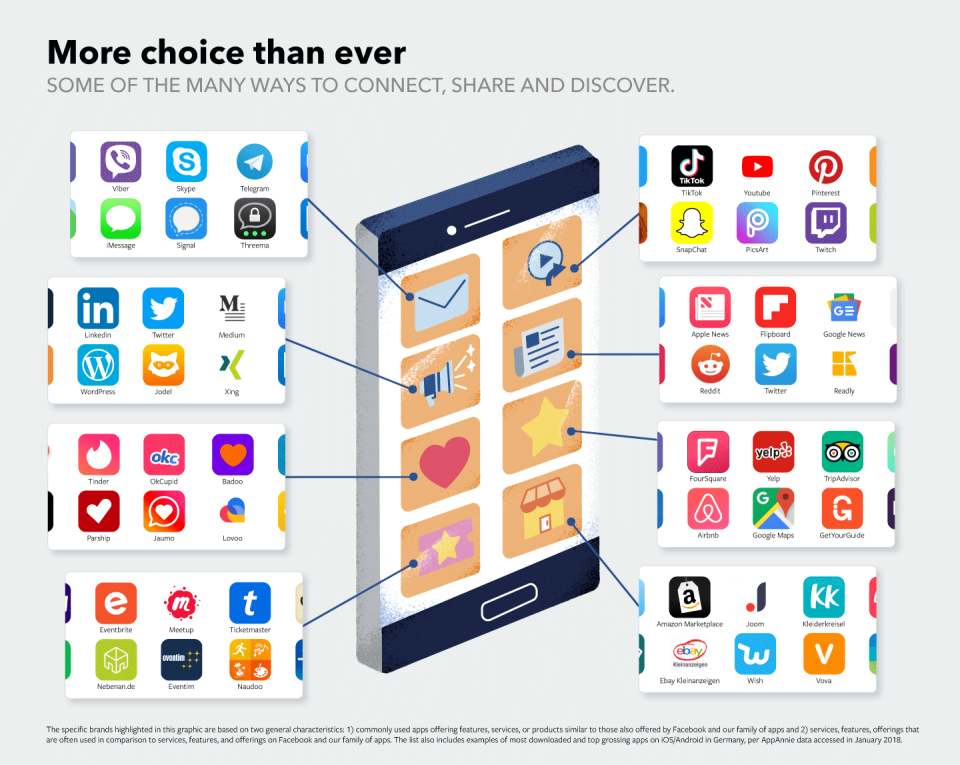By Yvonne Cunnane, Head of Data Protection, Facebook Ireland and Nikhil Shanbhag, Director and Associate General Counsel
Today, Germany’s Bundeskartellamt (FCO) issued an order in the inquiry it began in March 2016. While we’ve cooperated with the Bundeskartellamt for nearly three years and will continue our discussions, we disagree with their conclusions and intend to appeal so that people in Germany continue to benefit fully from all our services. The Bundeskartellamt underestimates the fierce competition we face in Germany, misinterprets our compliance with GDPR and undermines the mechanisms European law provides for ensuring consistent data protection standards across the EU.
The protection of personal data is a fundamental right in the EU and everyone gets equal protections as part of the GDPR regardless of the size of the company involved. Over the past year, lawmakers and data protection regulators have put in place new safeguards over people’s information, raised fair questions about the practices of many companies, including Facebook, and initiated investigations when warranted. We support the GDPR and take our obligations seriously. Yet the Bundeskartellamt’s decision misapplies German competition law to set different rules that apply to only one company.
Popularity is not dominance. The Bundeskartellamt found in its own survey that over 40% of social media users in Germany don’t even use Facebook. We face fierce competition in Germany, yet the Bundeskartellamt finds it irrelevant that our apps compete directly with YouTube, Snapchat, Twitter and others.
Facebook complies with the GDPR and is accountable for protecting people’s information. The GDPR went into effect less than a year ago and imposed new requirements on all companies operating in the EU, including Facebook. As part of complying with the GDPR, we revamped the information we provide people about their privacy and the controls they have over their information. We’ve introduced new and improved privacy experiences for everyone on Facebook, including asking everyone around the world to make choices about the ads they see and more. We’ll soon introduce Clear History, a tool where you’ll be able to see the information we receive from the websites and services who use our business tools and disassociate it from your account. The Bundeskartellamt has overlooked how Facebook actually processes data and the steps we take to comply with the GDPR.
The GDPR specifically empowers data protection regulators – not competition authorities – to determine whether companies are living up to their responsibilities. And data protection regulators certainly have the expertise to make those conclusions. The GDPR also harmonizes data protection laws across Europe, so everyone lives by the same rules of the road and regulators can consistently apply the law from country to country. In our case, that’s the Irish Data Protection Commission. The Bundeskartellamt’s order threatens to undermine this, providing different rights to people based on the size of the companies they do business with.
Using information across services helps to make them better and protect people’s safety. Facebook has always been about connecting you with people and information you’re interested in. We tailor each person’s Facebook experience so it’s unique to you, and we use a variety of information to do this – including the information you include on your profile, news stories you like or share and what other services share with us about your use of their websites and apps. Using information across our services also helps us protect people’s safety and security, including, for example, identifying abusive behavior and disabling accounts tied to terrorism, child exploitation and election interference across both Facebook and Instagram.
Every day, people interact with companies that connect and use data in similar ways. And all of this should be – and is – a legitimate area of focus for regulators and policymakers around the world. Yet the Bundeskartellamt is trying to implement an unconventional standard for a single company.
This is the point we’ll continue to make to the Bundeskartellamt and defend these important arguments in court, so that people and businesses in Germany can continue to benefit from all of our services. We’ll also continue finding ways to improve the controls we offer and safeguard people’s information.

